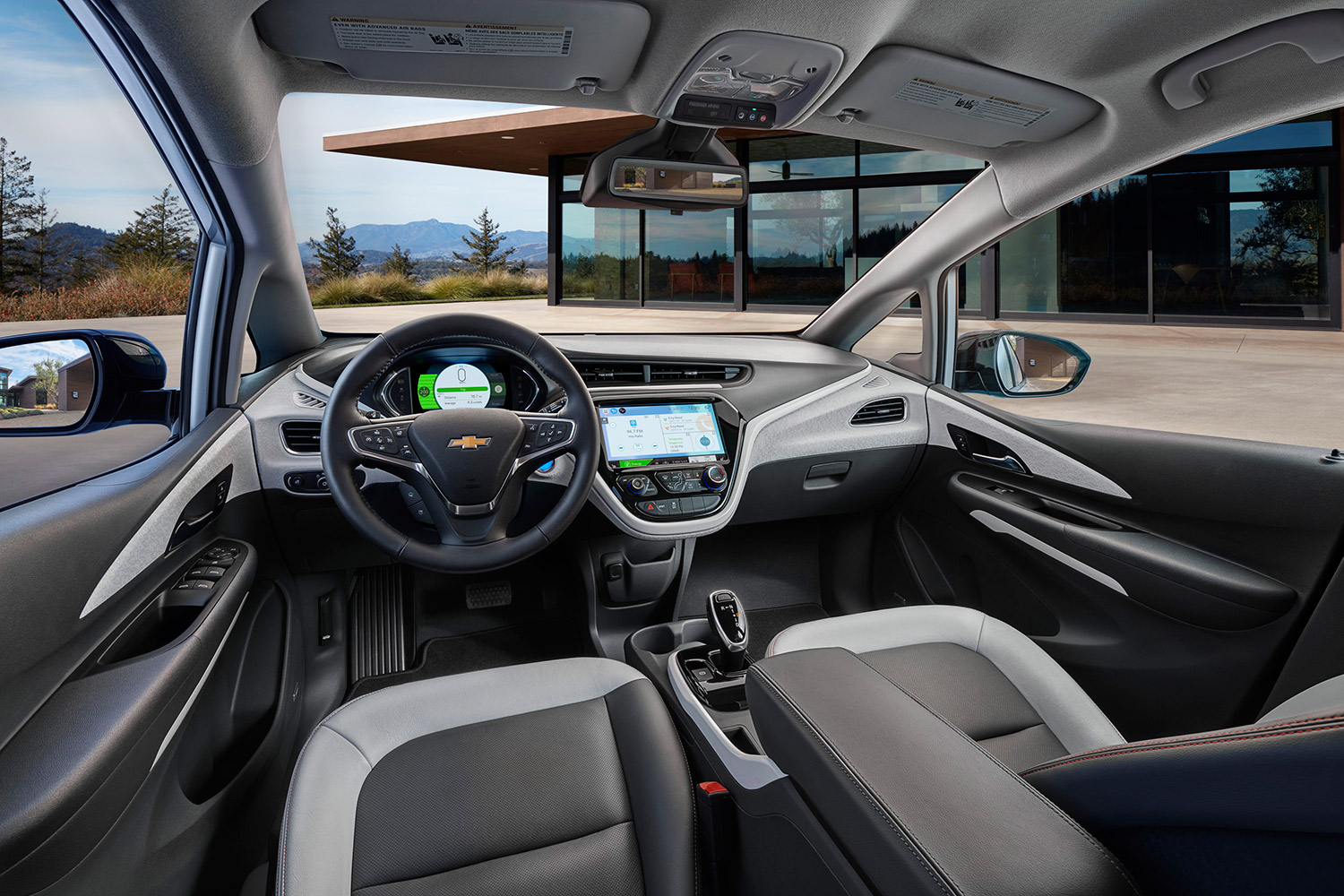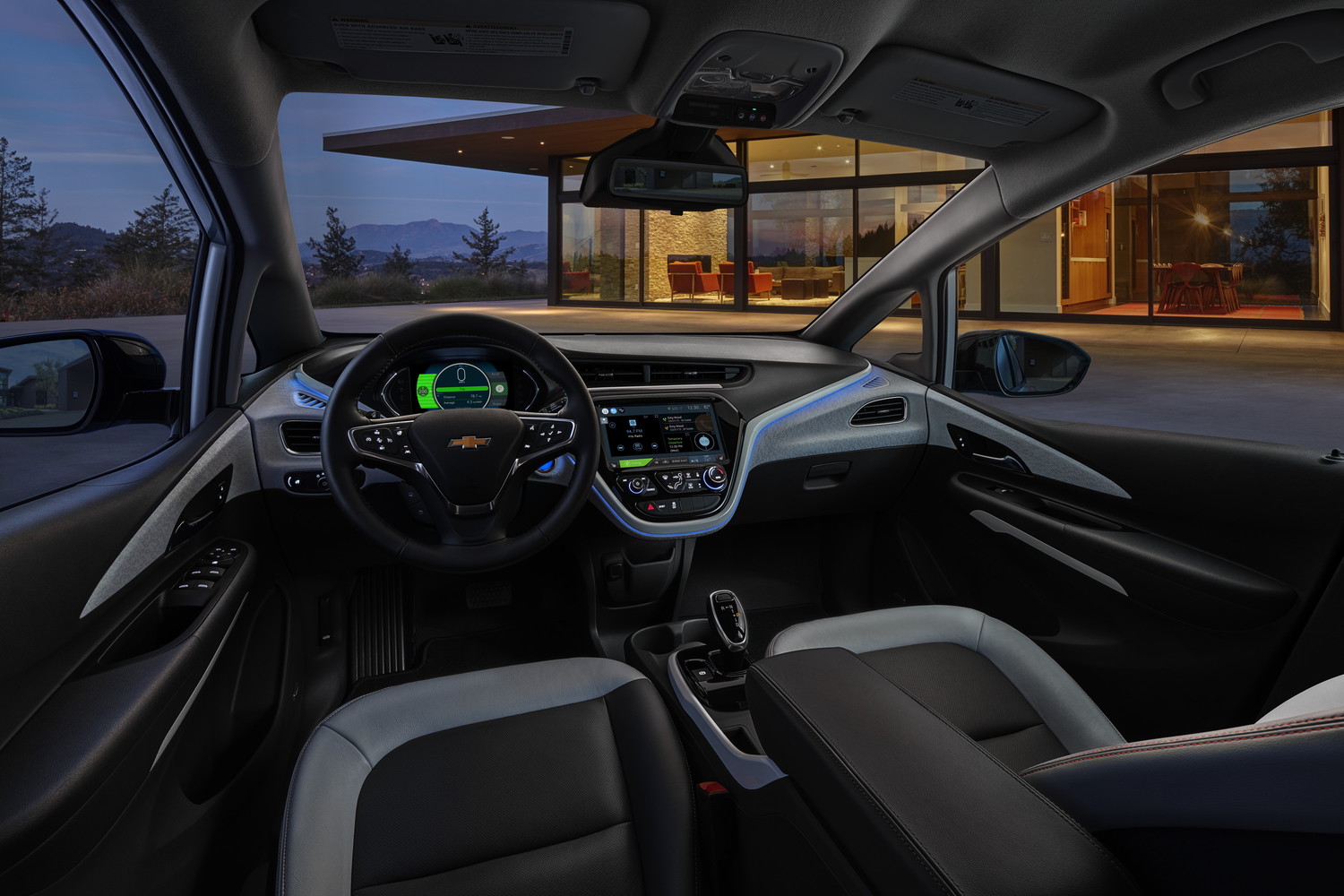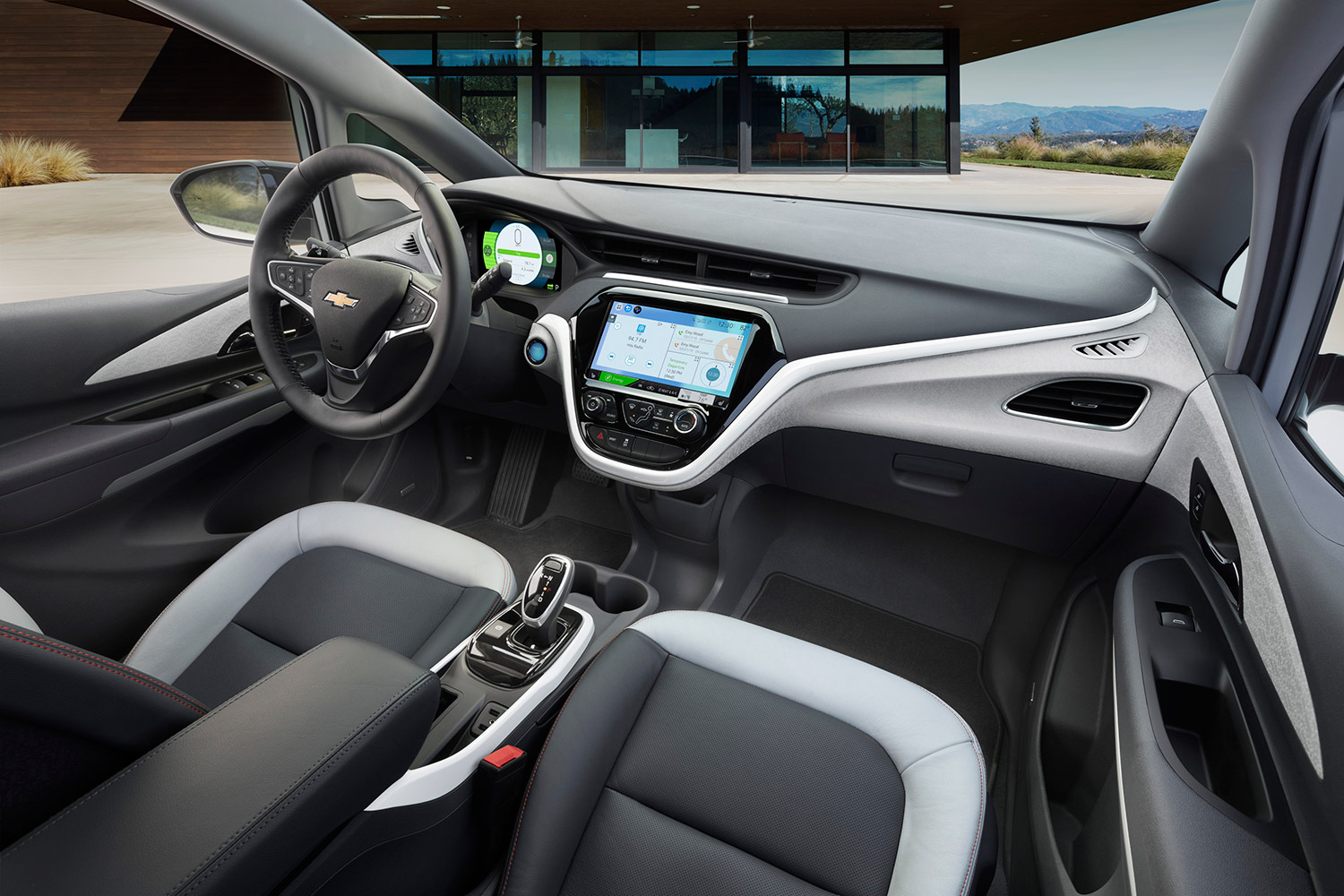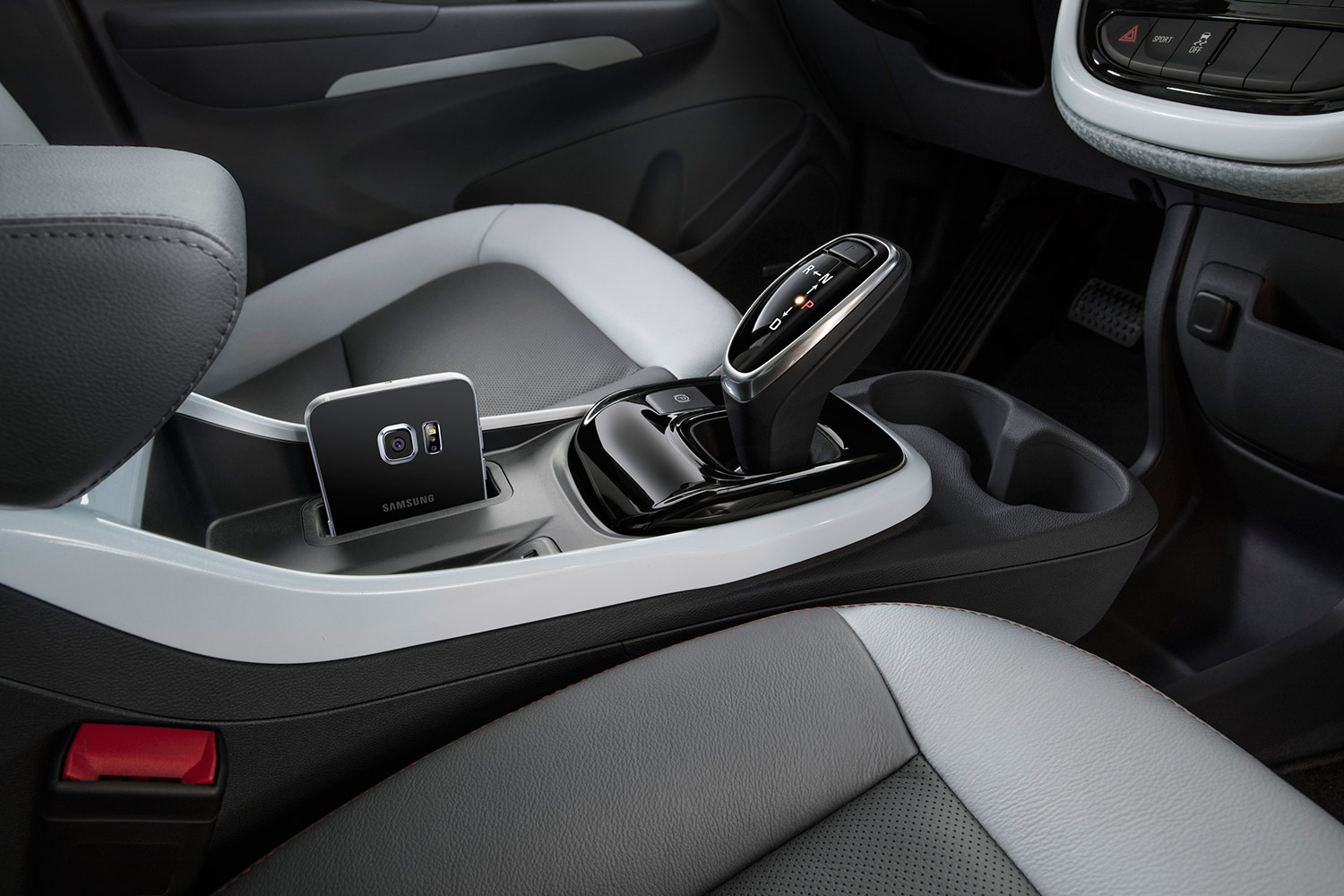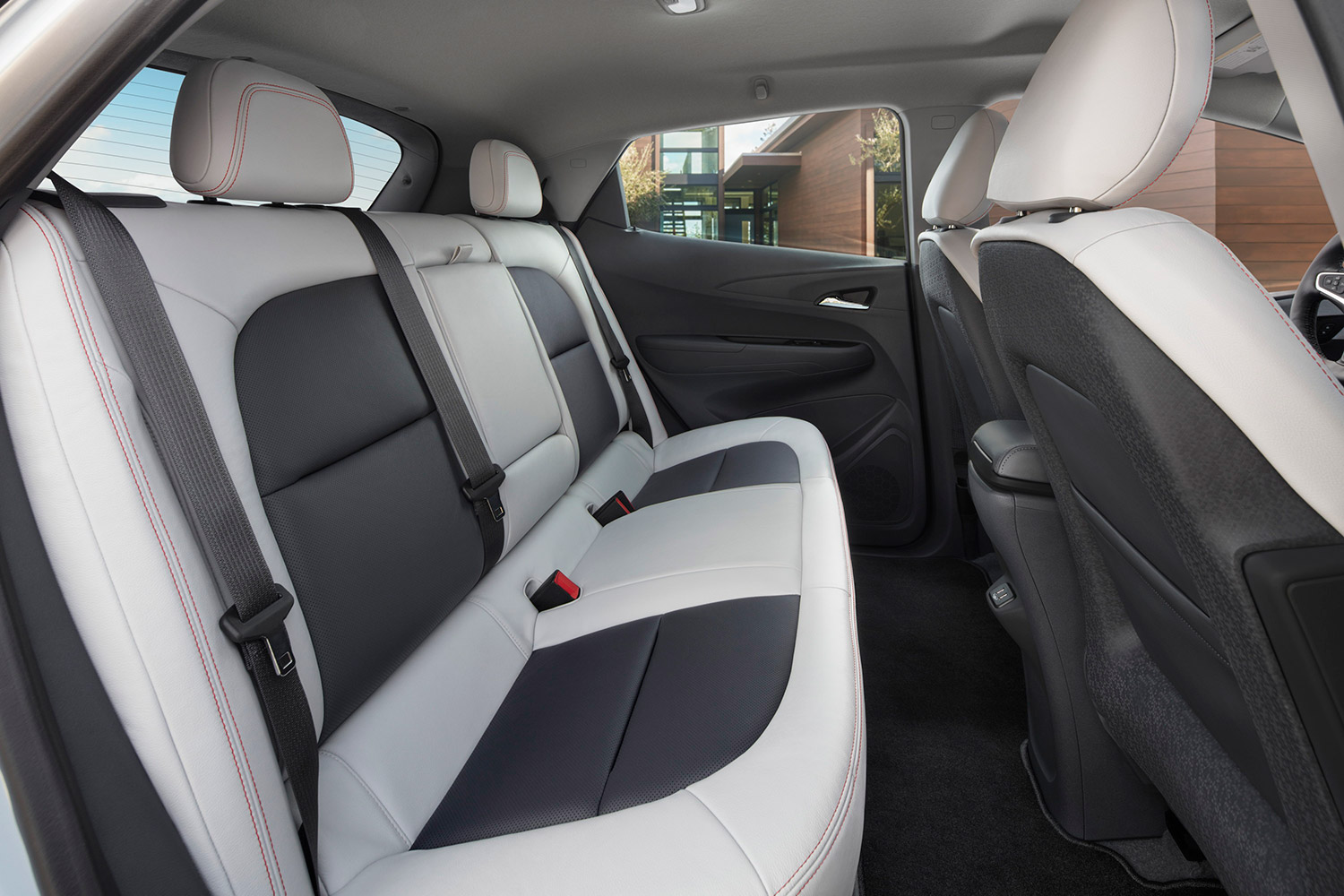You may have gotten used to seeing Chevrolet’s orange-tinged Bolt concept by now, but the road-going production version is finally here.
At CES 2016, Chevrolet took the wraps off the all-new 2017 Bolt EV, which boasts a 200-mile range, can replenish its battery to 80 percent in less than an hour with DC fast-charging, and features a slick buttonless infotainment system inside. Best of all, the Bolt’s price will fall to around $30,000 after tax credits and the like are factored in, which is around half the cost of the cheapest incentivized Tesla. In fact, it’s less than the average price of a new vehicle in the U.S. in general ($33,800), which is quite the statement for a fully-electric car with this type of range.
“It was less than a year ago that we revealed the Bolt EV concept and promised to deliver a long-range electric vehicle attainable by the masses,” said General Motors CEO Mary Barra. “The Bolt EV is capable of using the latest mobile app technology to enable car sharing, advanced GPS routing and gamification, all designed to enhance the ownership experience now and into the future.”
Connectivity and tech were obviously huge focuses for Chevrolet this time around, and the production Bolt equips tons of toys for all its occupants. The EV’s Bluetooth connection is a low-energy design, and automatically tethers the driver’s smartphone to the car as he or she approaches it. Once inside, passengers will enjoy a 4G LTE WiFi hotspot, a 10.2-inch “flip-board style” MyLink touchscreen, a 360-degree Surround Vision monitor, and a rear-facing camera display that replaces the old rear-view mirror. Reflective glass is so 2015, anyway.
A new app called MyChevrolet has also been developed for the Bolt EV. Outside of displaying information like charge status, MyChevrolet includes OnStar mapping services, remote start, cabin pre-conditioning, and dealer service scheduling. The small hatchback also offers EV navigation mapping, which designs routes tailored for maximum range and proximity to local charging station.
The 2017 Bolt goes into production toward the end of this year.
